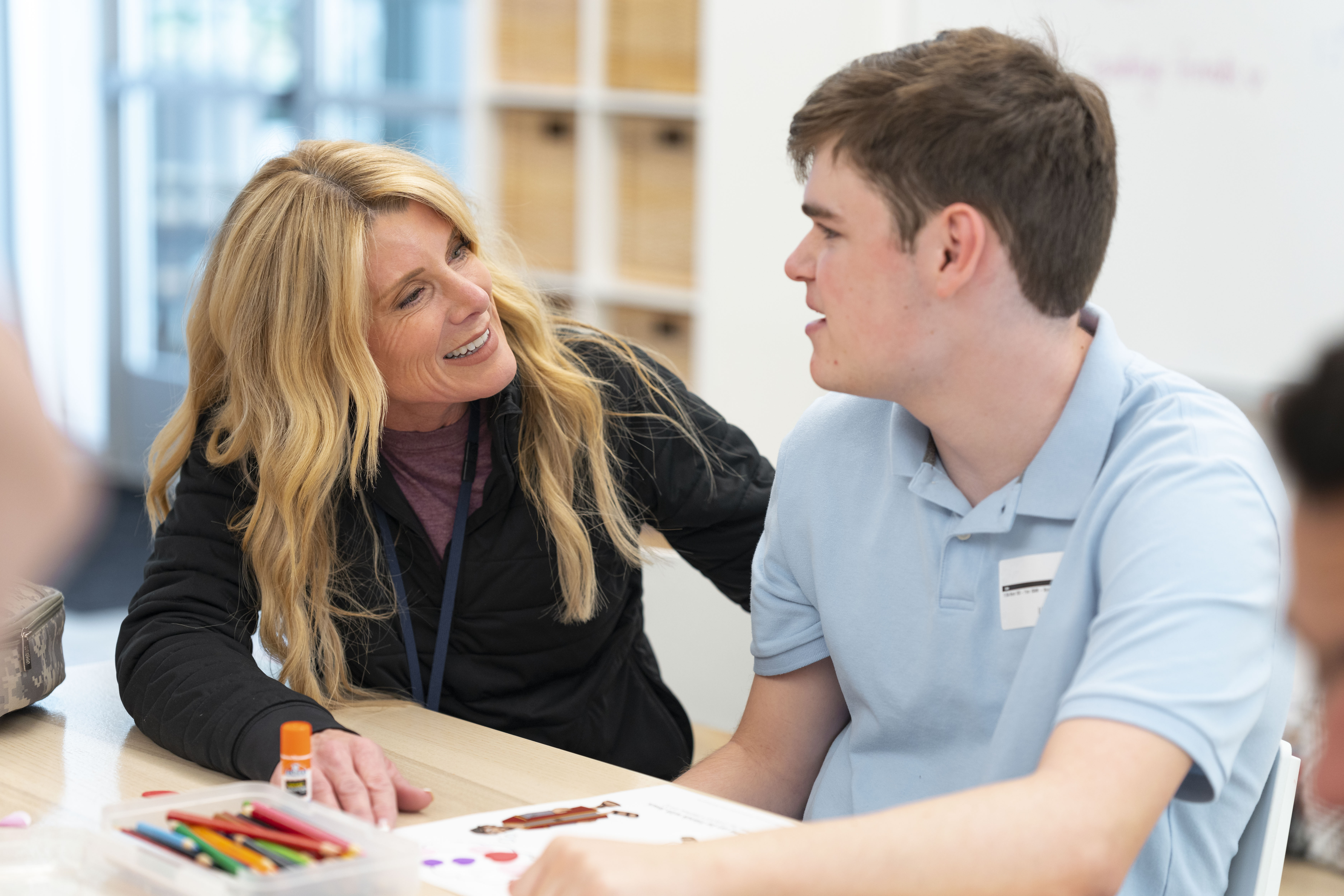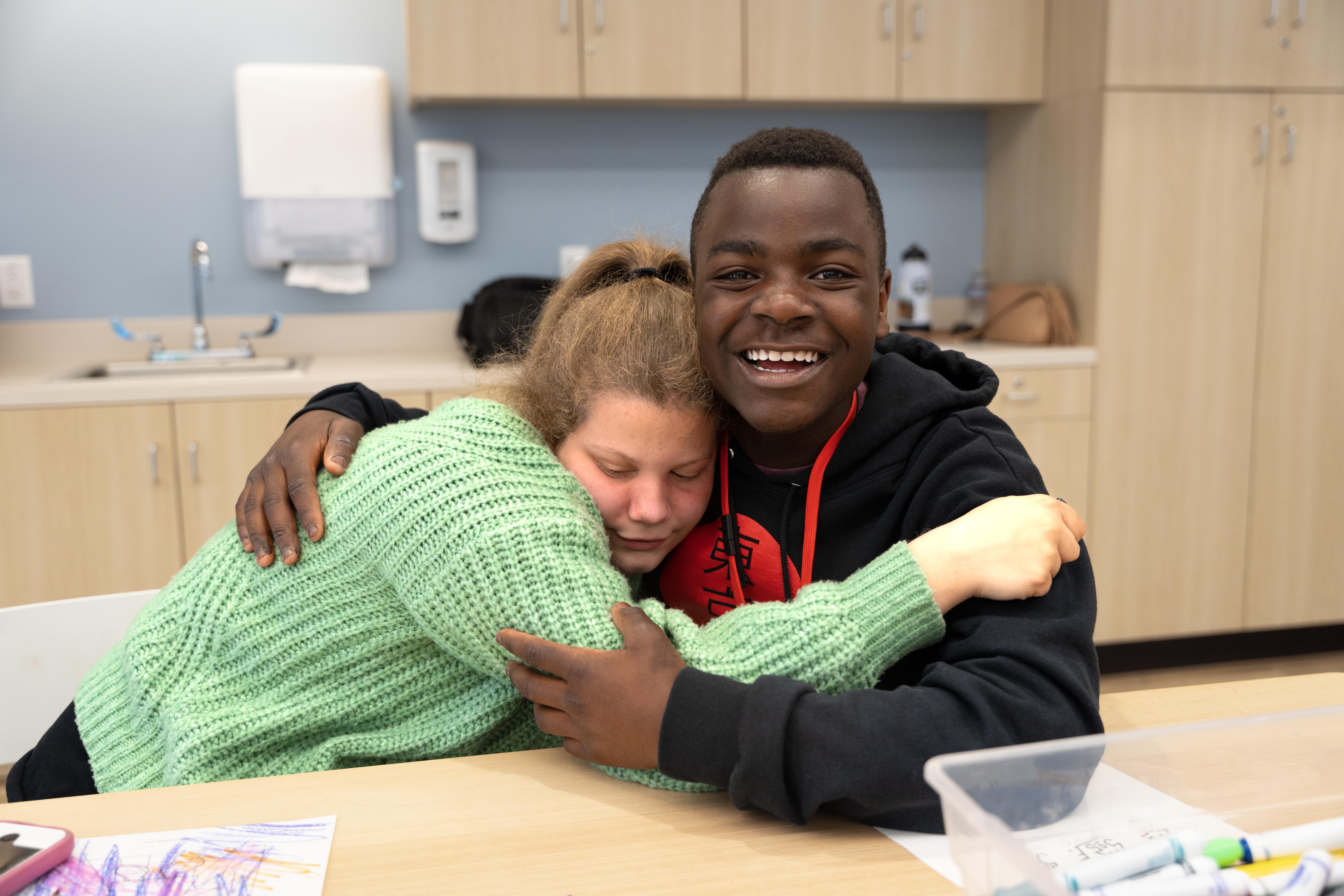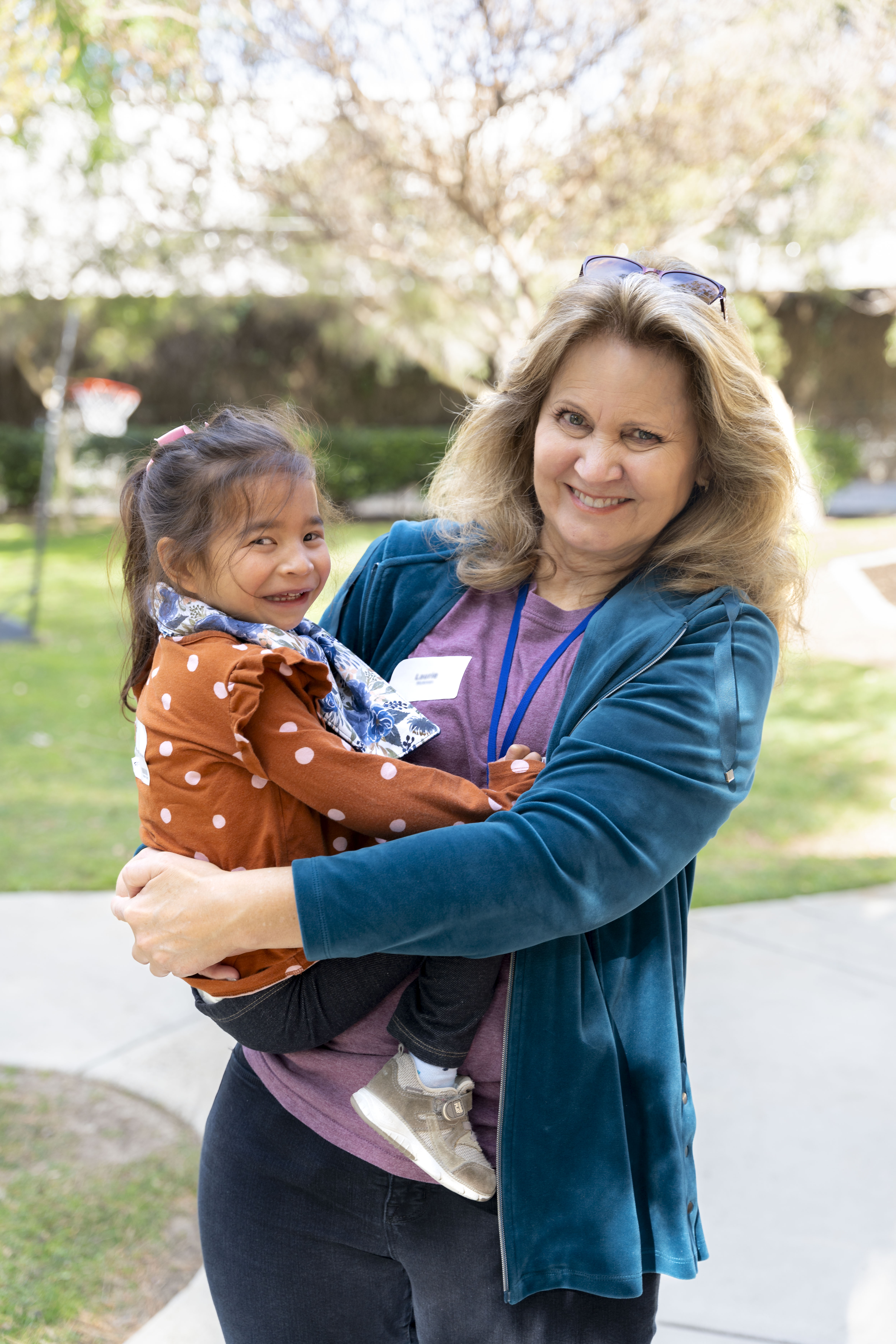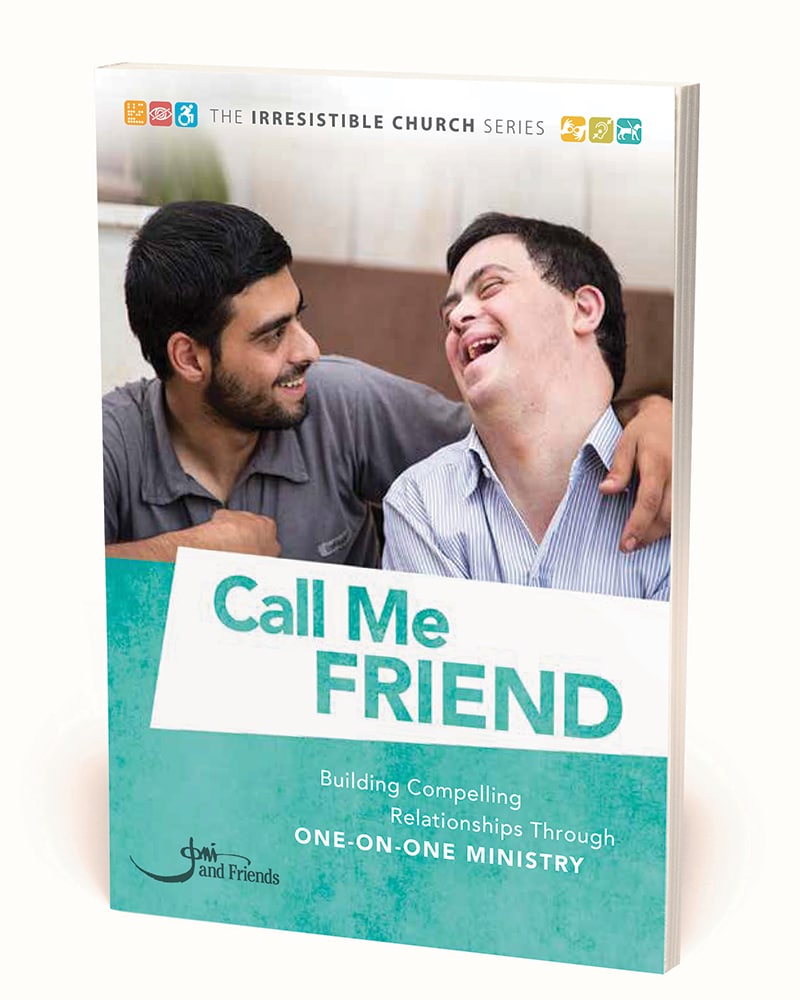Buddy Ministry Reveals God’s Love to People with Disabilities

Whenever possible, we want to offer people with disabilities the opportunity to do the same things everyone else does in the same space everyone else does it.
Providing one-on-one support, often called “buddy ministry,” can be the assistance someone with a developmental or intellectual disability needs to integrate with their peers and participate in the mainstream programs of your church.
Buddy ministry may go by many names, but whatever you call it, a one-on-one support person provides someone with a disability the chance to be known by their church community. Not every person with a disability will need a buddy, nor will every buddy provide the exact same thing. Buddies provide individualized support that is as unique as the individual they are serving. How a buddy serves may vary, but a buddy enables three primary things.

1. Discipleship
Learning to follow Christ as a disciple is what it means to be a Christian. A buddy proves in word and deed that people with disabilities are valued by the church and loved by Christ—reflecting Christ’s heart for people of all abilities. They provide access to teaching, worship, and fellowship: vital parts of discipleship.
Buddies also allow parents, caregivers, and siblings to relax and be discipled themselves. Instead of having to stay with their child (or worry about being called every couple of minutes), parents can trust their child is being loved and cared for. A buddy serves the whole family.
2. Friendship
A buddy can be a peer or an older adult, depending on the needs of the person with the disability. Though a peer buddy may more easily provide friendship, an older adult will facilitate access to relationships with peers. Though friendships aren’t automatic, a buddy provides the opportunity for someone with a disability to spend time with their peers. The buddy models how to act around people with disabilities and can be a bridge to further relationships.
3. Safety
Certainly, physical safety is a major consideration. But buddies also provide a safety net for people who might be ignored and marginalized. A buddy serves as an advocate and bridge, bringing people with disabilities from the fringes into the center of church life. If someone is out of sight, they’re out of mind. A buddy helps the person with a disability become a part of church life and avoid the danger of being forgotten.
What Does the Ideal Buddy Look Like?
Discovering the ideal buddy requires an understanding of what a buddy is meant to accomplish. A buddy is not a babysitter, a therapist, or a doctor. A buddy allows someone with a disability to participate in church life.
A buddy’s motivation is nothing less than fulfilling the Great Commission: to make disciples!
While it might be tempting to immediately start looking for people with experience in special education or behavioral therapy, it is crucial to remember that expertise does not qualify someone to be a buddy! Conversely, having no experience does not disqualify someone from being an effective buddy.

So, what does make a great buddy?
1. A Vibrant Relationship with Christ
Disability ministry is a ministry. While the world often gives the bare minimum to people with disabilities, Christ is looking to lavish his love on them. An effective buddy is one who is seeking the heart of Christ and looking to share it with others. Why we do what we do is at least as important as what we do. A desire to make the love of Christ known is a fuel that can sustain long-term volunteer engagement.
2. A Willingness to Learn
Every person is unique. Even for those who have expertise in disability, the willingness to learn about an individual is more important than any field of specialization. Remember, we do not serve a diagnosis; we serve individuals. You don’t necessarily need to know anything about a person’s disability, but you do need to know a lot about the person! Learning about their needs, experiences, and dreams is vital to creating opportunities for them to pursue God’s heart and discover God’s will for their life.

3. A Desire to Serve
Recruiting volunteers successfully has everything to do with how you present the need. When a leader seeking volunteers says, “Does anyone want to serve in our disability ministry?” the listener might hear, “Is anyone here an expert on disability?” This may severely limit your potential volunteer pool. Instead, highlight the joy surrounding what God is doing in and through those with disabilities and invite people to serve with you. Explain that anyone with a heart to help others grow in Christ and a willingness to learn is a perfect volunteer.
Learn More About Buddy Ministry!
For more info on “buddy ministry” and training material to onboard volunteers, download the free book from the Irresistible Church Series, Call Me Friend.


Do You Have Questions?
Contact us at [email protected] or call (818) 707-5664. We’re here for you. Your ministry’s success is our highest priority!





